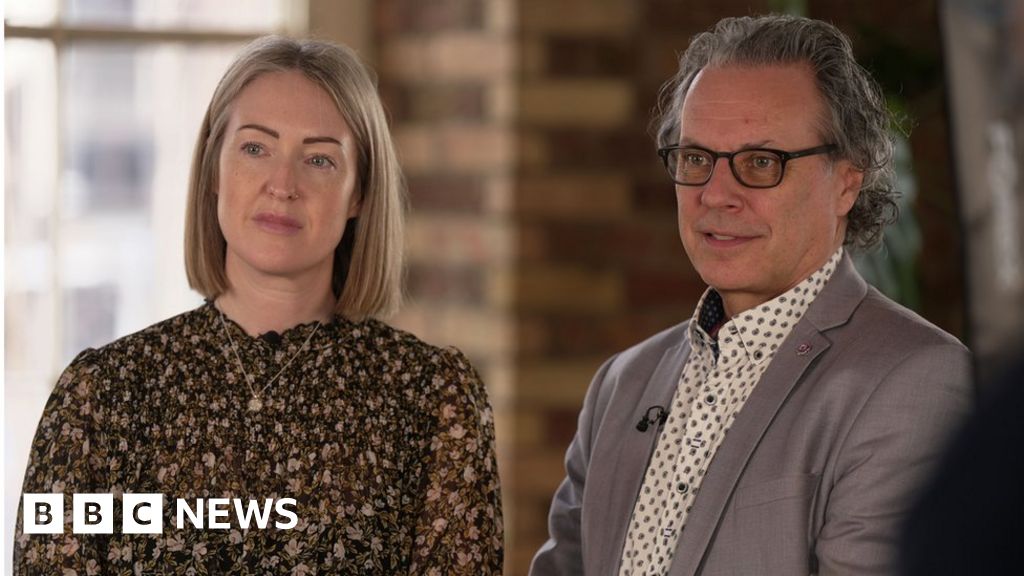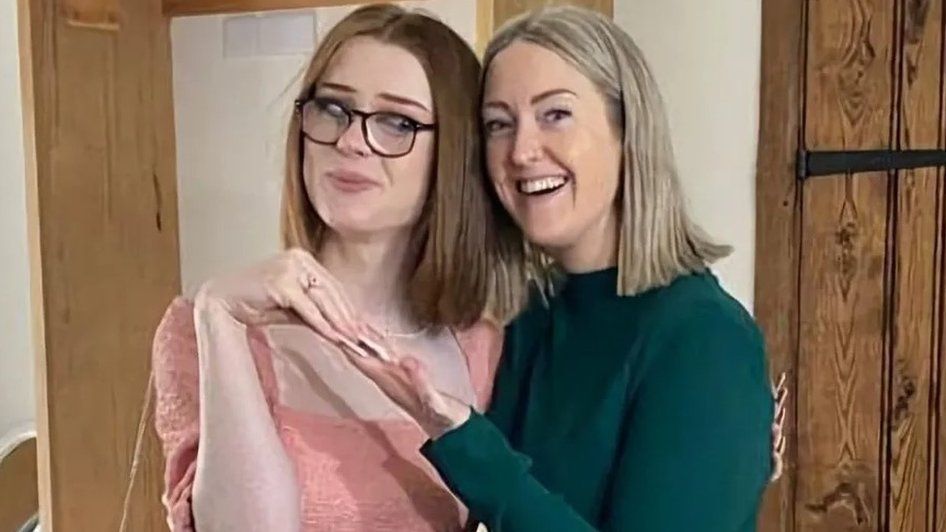This video can not be played
To play this video you need to enable JavaScript in your browser.
Esther Ghey and Ian Russell greet each other with a hug. The pair have a lot in common – though they would surely prefer that they had never had cause to meet.
“So good to meet you,” says Esther, as Ian smiles warmly.
Both parents have been bereaved in shocking and very public circumstances.
Ian lost his 14-year-old daughter Molly after she took her own life six years ago, and Esther’s daughter Brianna, who was transgender, was murdered one year ago this week.
While the circumstances of their children’s deaths were different, the one theme running through both is social media, Esther and Ian say. On Thursday, they met for the first time, to discuss how they can help protect teenagers online.
Molly’s family only discovered the truth about her internet use after her death.
Her feed was a constant stream of “dark harmful material”, according to her father, who has described it as “the bleakest of worlds”.
Long before her murder, Brianna’s mental wellbeing had been undermined by harmful content she encountered online, her mother says. This contributed, according to Esther, to making her feel vulnerable – a vulnerability exploited by her killers.
She was secretive with her phone, Esther remembers: “I didn’t have a clue what Brianna was looking at online.
“It was only after she was taken from us that I found out that she was accessing self-harm sites and eating disorder sites.”
Now, she and Ian want to join forces to prevent other parents experiencing the same things they have.
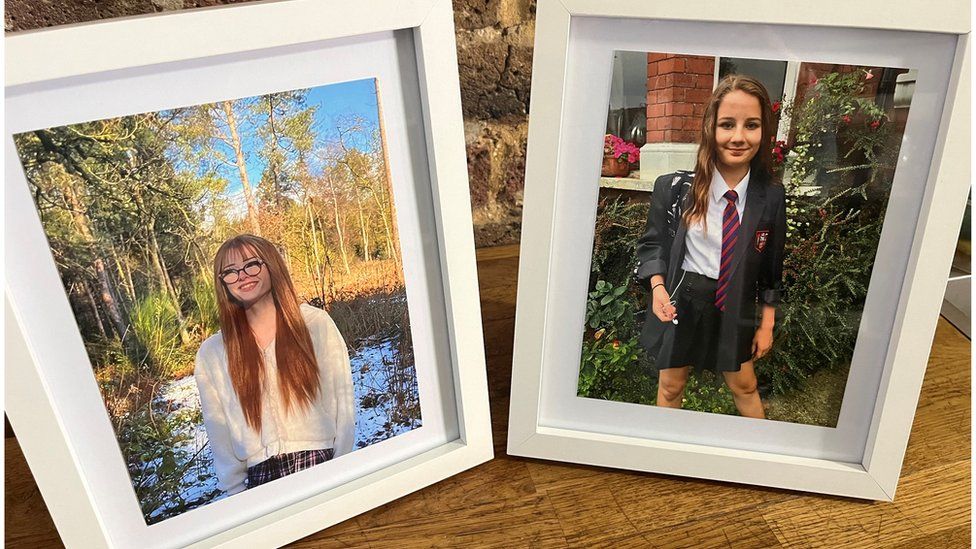
Throughout their conversation, both remain composed, even when discussing what would be unimaginable for most families.
It is only when Ian starts to read from his daughter’s notebook that Esther begins to look tearful.
“Sometimes, my mind is like a little boat out in the middle of the sea in a big storm,” reads Ian slowly.
“I’m alone, and all the waves are closing down on me, drowning me each time. It’s getting harder to breathe. I try and sail away from the storm and I’m good for a couple of days, but the storm will eventually catch up to me.
“I could try and sail through the storm but I’m too tired, and I may not make it out alive, so I stay where I am, hoping the storm will pass, but it’s taking too long, and I’m not that strong.”
Esther says her own daughter was not open with how she was feeling. When Brianna met one of her killers in her school’s inclusion unit, her mental health was so fragile she needed one-to-one teaching, and she had already been hospitalised for an eating disorder.
“I think Brianna was in a very dark place before what happened to her,” says her mum.
Esther believes many other parents are unaware of what their children are actually looking at. “We don’t access that content and we don’t even know that it’s there,” she says.
Ian admits that the online safety conversations he had with his three daughters were more likely to warn them to “be careful of who you might meet”, than about harmful content.
He tells Esther that in his five years of campaigning for social media companies to take more responsibility for the content their algorithms pump out to vulnerable teenagers, he has met other parents “who’ve lost children with a connection to online harms”.
“And the stories, they’re all unique and different, but there are huge overlaps in each case,” he explains.
“I know they’d like to meet you as well, at some point, if you’re ever up for it.”
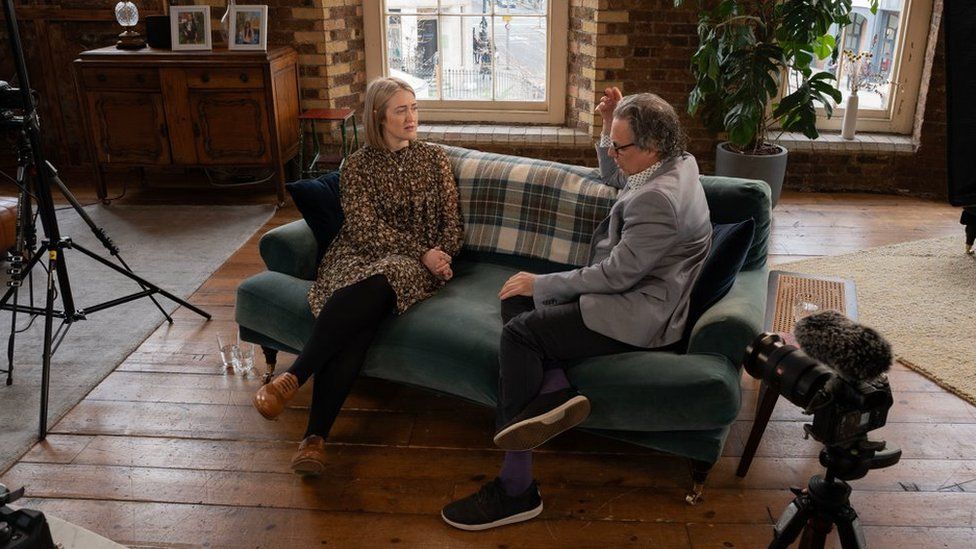
Esther responds: “It’s really important for us all to come together and be that louder voice and to call for change.”
She has already begun a campaign for mindfulness techniques to be taught in schools to help students build calm and resilience.
Ian believes it’s never been more needed. “It’s never been that easy to be a teenager,” he says, with social media providing a whole new level of challenge.
“We both lost children who had seen harmful things online and, in your case, there were other children involved who had been motivated to murder by what they’d seen online,” he says.
Esther believes it’s up to the bosses of the big tech companies to fix things.
Ian agrees: “It’s almost impossible for a parent to monitor and mirror and know what their children are doing and keep up with all the evolutions in all the tech platforms.”
He sees some positive changes in the regulatory framework in both the UK and the US which will help hold social media companies to account but believes the fight will last a lifetime.
Esther says their work is less of a “lifetime job” but more of a “five-lifetime job”. She adds: “I can’t see it ending anytime soon, but it will be absolutely great to work with you.”
Despite the tragedies that have brought the two together, they are determined to reflect on the brightness of their children’s lives, not just the circumstances of their deaths.
“It… helps to remember the good times and to remember Brianna for who she was,” says Esther. “To be grateful for the 16 years that I had with her, rather than to feel too sad that she isn’t here anymore.”
Ian understands. “When I saw Molly’s body for the first time after her death, I stopped and I didn’t know what to do, and then I can clearly remember this thought in my head: ‘If she has gone… it was better that I knew her’.”
Esther nods. “It keeps me going,” she says.
Additional reporting by Natasha Preskey
Related Topics
-
-
11 hours ago
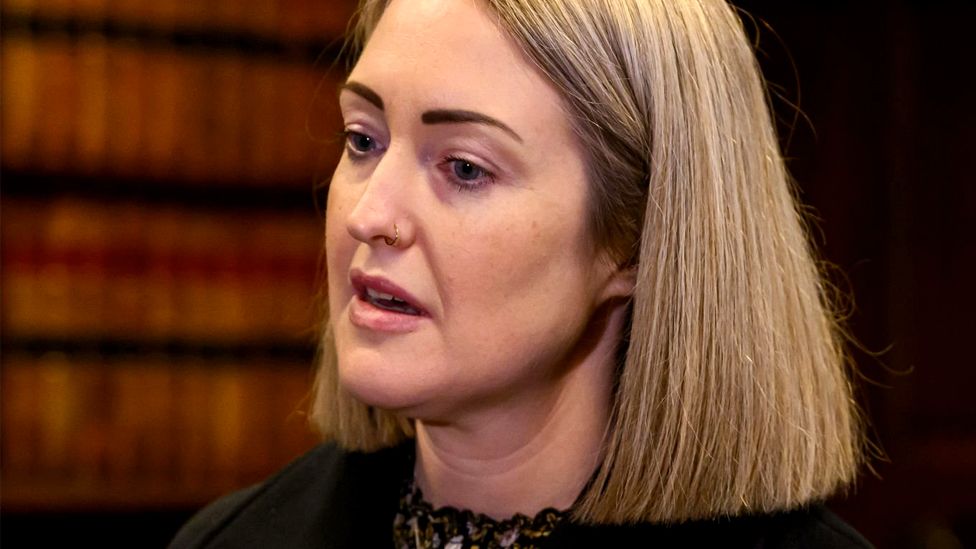
-
-
-
29 November 2023
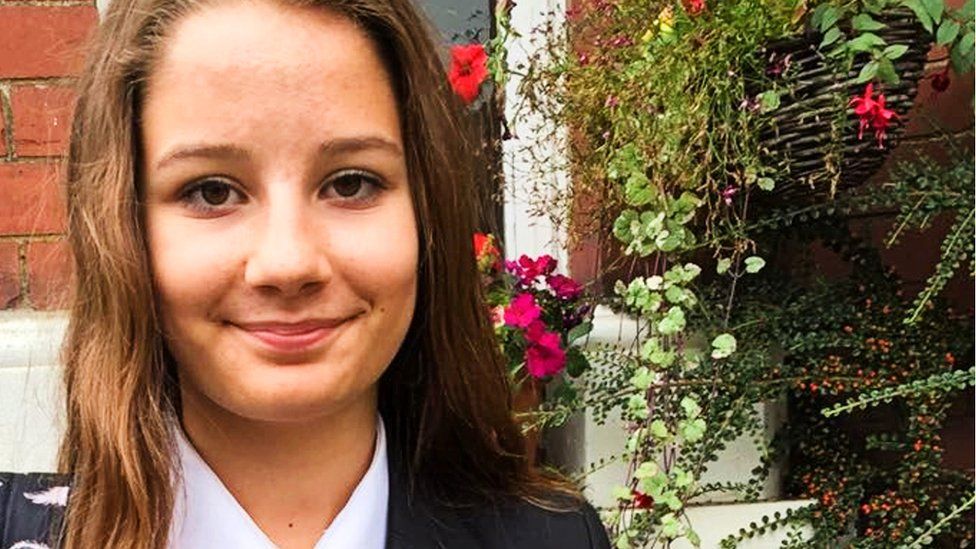
-
